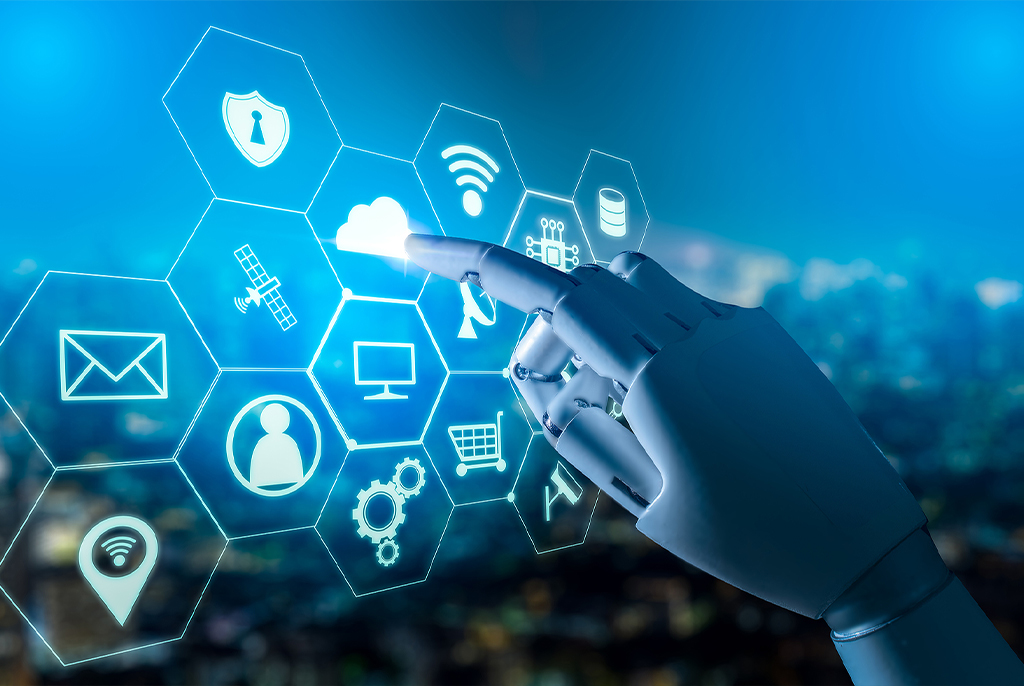In the ever-evolving landscape of technology, 2023 promises to be a year marked by groundbreaking innovations and transformative shifts across various industries. As we step into this new era, let’s explore the key technology trends that are set to redefine the way we live, work, and interact.
Artificial Intelligence (AI) at the Forefront: Artificial Intelligence continues to be a driving force behind technological advancements. In 2023, we can expect AI to become more integrated into our daily lives, influencing everything from personal devices to business operations. Machine learning algorithms are becoming increasingly sophisticated, enabling AI systems to learn and adapt in real-time. This trend is particularly evident in applications like natural language processing, computer vision, and predictive analytics.
5G Revolution Unleashed: The rollout of 5G networks is set to reach new heights in 2023, ushering in a new era of connectivity. The increased speed and bandwidth of 5G will not only enhance mobile communication but also pave the way for the widespread adoption of technologies like the Internet of Things (IoT) and augmented reality (AR). From smart cities to autonomous vehicles, 5G will act as the backbone for a more connected and efficient world.
Metaverse and Virtual Reality (VR): The concept of the metaverse, a collective virtual shared space, is gaining momentum. In 2023, we will witness an expansion of virtual reality experiences, blurring the lines between the physical and digital worlds. VR will extend beyond gaming and entertainment, finding applications in education, healthcare, and remote work. As more companies invest in creating immersive virtual environments, the metaverse is poised to become a central part of our online interactions.
Blockchain Beyond Cryptocurrency: While blockchain technology gained prominence through cryptocurrencies like Bitcoin, its applications are extending far beyond digital currencies. In 2023, we can anticipate the widespread adoption of blockchain in industries such as supply chain management, healthcare, and finance. The decentralized and transparent nature of blockchain provides a secure and tamper-resistant way to handle data, fostering trust and efficiency in various sectors.
Edge Computing for Real-Time Processing: With the increasing volume of data generated by IoT devices, edge computing is emerging as a crucial technology in 2023. This approach involves processing data closer to the source rather than relying solely on centralized cloud servers. By reducing latency and improving response times, edge computing is revolutionizing industries that require real-time data processing, such as autonomous vehicles, smart manufacturing, and healthcare.
Sustainable Technology Solutions: As global concerns about climate change intensify, the technology industry is embracing sustainable practices. In 2023, we will witness the development and adoption of eco-friendly technologies, including energy-efficient data centers, renewable energy solutions, and environmentally conscious manufacturing processes. Tech companies are recognizing their responsibility to minimize their environmental impact and contribute to a more sustainable future.
Cybersecurity in the Spotlight: With the increasing integration of technology into every aspect of our lives, the importance of cybersecurity cannot be overstated. In 2023, there will be a heightened focus on developing robust cybersecurity measures to protect individuals, businesses, and critical infrastructure from cyber threats. Advances in AI-driven cybersecurity solutions and proactive risk management will be pivotal in safeguarding digital assets.
In conclusion, 2023 is poised to be a year of technological leaps, bringing us closer to a future that was once the realm of science fiction. From the integration of AI into our daily lives to the expansion of the metaverse, these trends collectively shape the way we experience and interact with the world. As technology continues to evolve, it holds the potential to address societal challenges, enhance efficiency, and create a more interconnected and sustainable global community.


